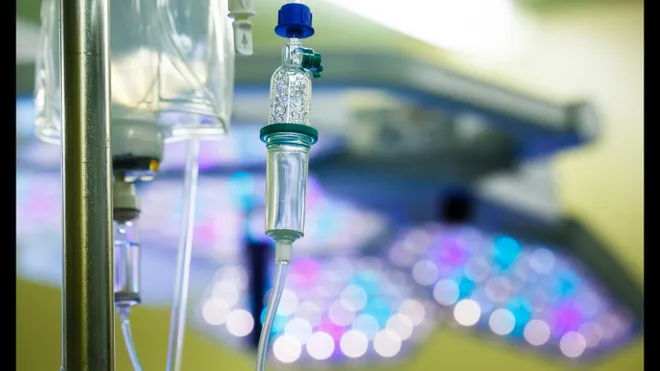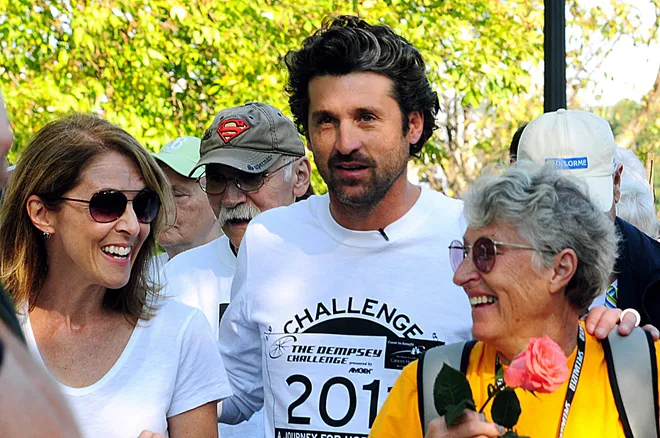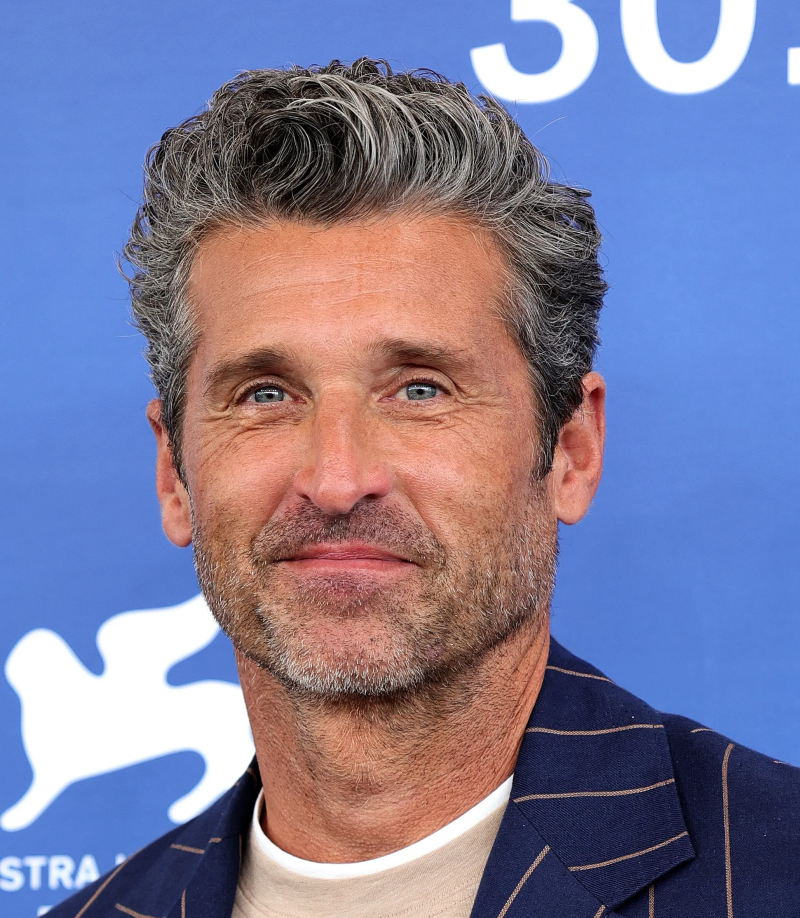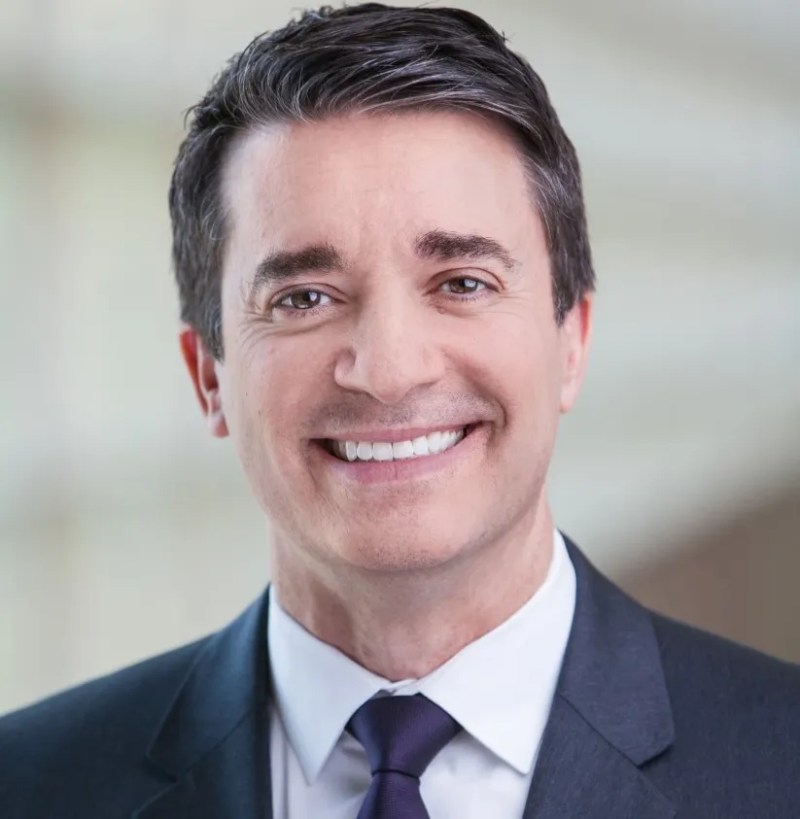Patrick Dempsey watched his mom fight cancer. Now he's giving families the support his needed.
Cancer mortality rates have dropped 33% since their peak in 1991, according to a recent report from the American Cancer Society.
Yet, we still have a long way to go. We've improved the life span of cancer patients. But we haven't necessarily improved the quality of life for patients − and their loved ones and caregivers. Doing so will require a more holistic form of care, one that treats the people cancer impacts rather than just the disease.
The drop in cancer mortality mostly stems from better drugs, along with increased prevention and screening in the past decade. While the standard of cancer care once involved only major surgeries and high doses of chemotherapy, it now includes a wide range of immunotherapies, gene therapies, combination treatments and precision medicines that more effectively target tumors.
Each of these breakthroughs has helped make cancer more survivable. But that doesn't mean a diagnosis is ever easy.
Many Americans fear cancer treatments, which are notoriously hard on patients' bodies. The most infamous are chemotherapy and radiation, which destroy not only cancer cells but healthy cells as well. This typically causes a wide range of side effects, from nausea and muscle pain to hair loss and increased vulnerability to infection.
Add in the array of tests, hospital visits, missed work, inability to complete daily tasks and financial burdens that typically come with a cancer diagnosis, and it's easy to see why up to 1 in 3 cancer patients struggle with a mental health condition.

Depression and anxiety are common among cancer caregivers
Family members, friends and caregivers also may struggle when a loved one is diagnosed. One study of more than 20,000 cancer caregivers found that roughly 42% had depression and nearly 47% had anxiety.
Caregivers often have to take time off work, provide basic medical care for the first time, schedule appointments, help with everyday tasks and reassure their loved ones battling cancer − all while managing their own anxieties. It's easy to feel helpless, angry, guilty or isolated, as one of us understands all too well.
When Patrick's mom was diagnosed with ovarian cancer in 1997, the family didn't know how they could help her in her fight. The cancer came back multiple times, making it difficult to stay optimistic.

Our responses to cancer are only human. But there are still few support systems in place to treat these human aspects of cancer − the side effects, stress and anxiety that even the most cutting-edge immunotherapies or precision medicines can't erase.
Imagine a more holistic approach − one that treats each person's unique experiences with cancer as diligently as doctors currently treat the disease.
While medication may be able to ease the worst side effects for some people, others may want or need additional nonpharmaceutical support. Yet, many patients don't have access to interventions like acupuncture, massage or nutrition planning.
I'm a doctor. So is my mother.When she got cancer, I realized how little that mattered.
Most cancer patients don't receive help from dieticians
Consider that, in a national survey of more than 1,000 cancer survivors, just 39% reported ever seeing a registered dietician during their treatment. That's despite the fact that meeting with a nutritionist can help patients find food they can enjoy, or at least tolerate, while dealing with chemotherapy-induced nausea and changing taste buds.
Nutrition planning doesn't just help ease the side effects of treatment. It may also save lives. One meta-analysis found that a high-quality diet was associated with a 23% decrease in mortality among breast cancer patients.
Other patients might need services to help them manage the mental health struggles that can make it more difficult to adhere to treatment and get better. This might include sessions with a trained therapist, support groups, meditation, exercise or even animal-assisted therapy.
A study of Italian cancer patients found that those who received chemotherapy with therapy dogs in the room were less depressed and had higher blood oxygen levels, which is linked to improved treatment outcomes.
Services like that might have been helpful for Patrick's mom. For many of the years she battled cancer, the family worked hard to provide her with the support she needed. They tried to keep her busy with exercise or tasks around the house − anything to help get her out of bed in the morning.

Those years were taxing. At the time, the family might have benefitted from mental health services, too. A recent meta-analysis found that mental health programs targeted at caregivers and family members of late-stage cancer patients improved their quality of life.
Similar programs are already available at the Dempsey Center, which Patrick and his siblings founded after watching their mom navigate − and ultimately lose − her battle with cancer. The center, which has two locations in Maine and a virtual center called Dempsey Connects, offers counseling (both individually and through support groups), complementary therapies (nutrition, movement and fitness, massage, acupuncture and reiki), and comfort and well-being programs (therapy dogs, wigs and headwear, comfort items and a hospitality home called Clayton's House) for people impacted by cancer − whether the cancer patient, survivor, a loved one or care partner.
My father helped save my life:I inherited a cancer gene from my dad. He also left me a game plan to live.
All of these services are made possible through support from individuals, corporate partners and foundation funders, ensuring these high-quality, professional services are provided without adding an additional financial burden on the client.
The Dempsey Center's model of care fulfills the missing need to treat the human − not just the disease − and reduces or removes the emotional and financial toxicity of a cancer impact.
Of course, not every cancer center has the resources to provide these services free of charge. But they'd be better equipped to incorporate them into the cancer care continuum if they could bill a patient's insurance when they provide them. Now, not every insurance plan covers holistic cancer care − limiting patient access and quality of life.
That has to change.
We've made incredible advances treating cancer. It's time we made similar advancements in the way we treat the people experiencing the disease.

Patrick Dempsey is an actor, producer, philanthropist and the founder of the Dempsey Center, which provides personalized and comprehensive cancer care at no cost. Dr. John Whyte is chief medical officer of WebMD.
Disclaimer: The copyright of this article belongs to the original author. Reposting this article is solely for the purpose of information dissemination and does not constitute any investment advice. If there is any infringement, please contact us immediately. We will make corrections or deletions as necessary. Thank you.







